Oral history archive
As of September, 2015, we were able to begin posting audio, video, and transcription files for the hundreds of oral histories GLAPN has collected over its years of existence.
We have been fortunate to partner with the University Studies Program at Portland State University, where a GLAPN member teaches our Queer History Capstone several times per year. GLAPN selects elders in the LGBTQ community, and sends students out in teams to interview them and capture their stories. Transcriptions of the interviews are archived permanently at Oregon Historical Society.
There is a large backlog of material, and the uploading process takes time. Please come back often to see what progress we have made in getting our oral historines online.
GLAPN is always interested in hearing from, or about, individiuals whose stories should be captured to document the history of history of sexual minorities in the Pacific Northwest. Contact us at info@GLAPN.org with your suggestions.
Additional GLAPN oral interview audios and/or transcritions are being made available directly by Oregon Historical Society at https://digitalcollections.ohs.org/gay-and-lesbian-archives-of-the-pacific-northwest-oral-histories. Items will be added gradually a few at a time. Check back occasionally for new items.
Subject and |
Overview |
| Marty Davis, March 13, 2012 |
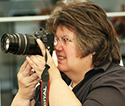 Marty Davis was the owner and publisher of Portland's LGBT newspaper, Just Out, from 1998 through 2011, documenting the news of the community and offering a strong editorial voice. Follow this link to hear the interview. Marty Davis was the owner and publisher of Portland's LGBT newspaper, Just Out, from 1998 through 2011, documenting the news of the community and offering a strong editorial voice. Follow this link to hear the interview. |
| Khalil Edwards, February 8, 2013 |
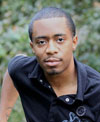 Khalil Edwards is a native Portlander, founder of PFLAG Portland's Black Chapter, and is a tireless organizer in Oregon as Racial Justice Fellow at Basic Rights Oregon. He holds a Master's degree from Portland State University's Graduate Teacher Education Program, and taught middle- and high-school English for three years before taking up full-time work in the social justice area. Follow this link to hear the interview. Khalil Edwards is a native Portlander, founder of PFLAG Portland's Black Chapter, and is a tireless organizer in Oregon as Racial Justice Fellow at Basic Rights Oregon. He holds a Master's degree from Portland State University's Graduate Teacher Education Program, and taught middle- and high-school English for three years before taking up full-time work in the social justice area. Follow this link to hear the interview. |
| April Lewis, May 1st, 2012 |
April Lewis has spent the majority of her life in Portland, Oregon, and has paid close attention to the evolution of the city’s LGBT communities. In this interview she shares some fascinating information about her family, her background in diversity training, her involvement with Portland’s lesbian softball league, and her experience of living through the AIDS crisis of the 1980s. Now over twenty-five years sober, April speaks candidly about her identity as a recovering person, twelve-step programs, addiction and abuse within LGBT communities, and the importance of addiction recovery communities. Follow this link to hear the interview. |
| George Nicola, February 14, 2009 |
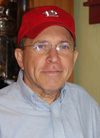 In 1973, George Nicola wrote and lobbied for Oregon's first gay rights bill, which came within two votes of passage in Oregon's House of Representatives. He was one of GLAPN's Queer Heroes in 2013, and his Queer Hero profile is available at this link. In this oral history interview, Mr. Nicola discussed his role in the nascent Gay Rights movement in Portland in the early 1970s and the writing of the first gay rights bill and lobbying for its passage. He also discussed a little bit why he became involved in the movement, the changes over the years in the public perception of gays and their own perceptions of themselves, and what he felt their accomplishments were today. In 1973, George Nicola wrote and lobbied for Oregon's first gay rights bill, which came within two votes of passage in Oregon's House of Representatives. He was one of GLAPN's Queer Heroes in 2013, and his Queer Hero profile is available at this link. In this oral history interview, Mr. Nicola discussed his role in the nascent Gay Rights movement in Portland in the early 1970s and the writing of the first gay rights bill and lobbying for its passage. He also discussed a little bit why he became involved in the movement, the changes over the years in the public perception of gays and their own perceptions of themselves, and what he felt their accomplishments were today.Follow this link to hear the interview. |
| Ellen Goldberg, February 24, 2011 |
Ellen Goldberg is a lesbian activist who was one of the founders of the Mountain Moving Café, which was a place where men and women gathered to form a community. It wasn’t necessarily a gay or straight place. Rather, it was a place for people to meet and do political work.
|
| Rupert Kinnard, February 14, 2013 |
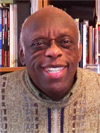 Rupert Kinnard is a cartoonist/graphic designer who has been involved with the LGBTQ community in Portland, Oregon for more than 30 years in newspapers and community organizing. He is recognized nationally as the comic strip artist who created the first gay, black superheroes. Rupert was one of GLAPN's Queer Heroes for 2013, and his Queer Hero profile is available at this link. In this interview, he discusses his activism among queer people of color, the accident that left him paraplegic, his experience and career in cartooning and graphic design, working for Just Out, his new venture The LifeCapsule Project, and his feelings on gay marriage. Rupert Kinnard is a cartoonist/graphic designer who has been involved with the LGBTQ community in Portland, Oregon for more than 30 years in newspapers and community organizing. He is recognized nationally as the comic strip artist who created the first gay, black superheroes. Rupert was one of GLAPN's Queer Heroes for 2013, and his Queer Hero profile is available at this link. In this interview, he discusses his activism among queer people of color, the accident that left him paraplegic, his experience and career in cartooning and graphic design, working for Just Out, his new venture The LifeCapsule Project, and his feelings on gay marriage.Follow this link to hear the interview. |
| Holly Hart, November, 2000. |
|
| John Wilkinson and Dave Davenport, July, 2003 |
|
P.O. Box 3646 • Portland, OR 97208-3646 • info@glapn.org
Copyright © 2017
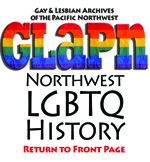
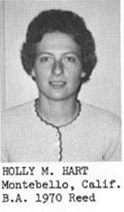 Holly Hart was writing mostly on feminist issues in 1970 at Portland's underground newspaper, Willamette Bridge, when fellow staff writer John Wilkinson proposed the founding of a Gay Liberation Front in Portland. Holly came out at that point, writing in support and organizing a women's presence in the GLF, and subsequently working as an attorney in Portland and serving at a statewide level in early LGBTQ organizations. This is an interview by students in Portland State University's Queer History Capstone, conducted in November, 2000.
Holly Hart was writing mostly on feminist issues in 1970 at Portland's underground newspaper, Willamette Bridge, when fellow staff writer John Wilkinson proposed the founding of a Gay Liberation Front in Portland. Holly came out at that point, writing in support and organizing a women's presence in the GLF, and subsequently working as an attorney in Portland and serving at a statewide level in early LGBTQ organizations. This is an interview by students in Portland State University's Queer History Capstone, conducted in November, 2000.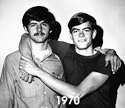 John Wilkinson wrote an article in Portland's "underground" Willamette Bridge in 1970 that led to Portland's earliest public gay organizing, and later he and his partner led a successful campaign for marriage equality in the state of Washington. This is a transcription of an interview of John and Dave, done by Northwest Lesbian and Gay History Museum Project, Seattle, WA.
John Wilkinson wrote an article in Portland's "underground" Willamette Bridge in 1970 that led to Portland's earliest public gay organizing, and later he and his partner led a successful campaign for marriage equality in the state of Washington. This is a transcription of an interview of John and Dave, done by Northwest Lesbian and Gay History Museum Project, Seattle, WA.